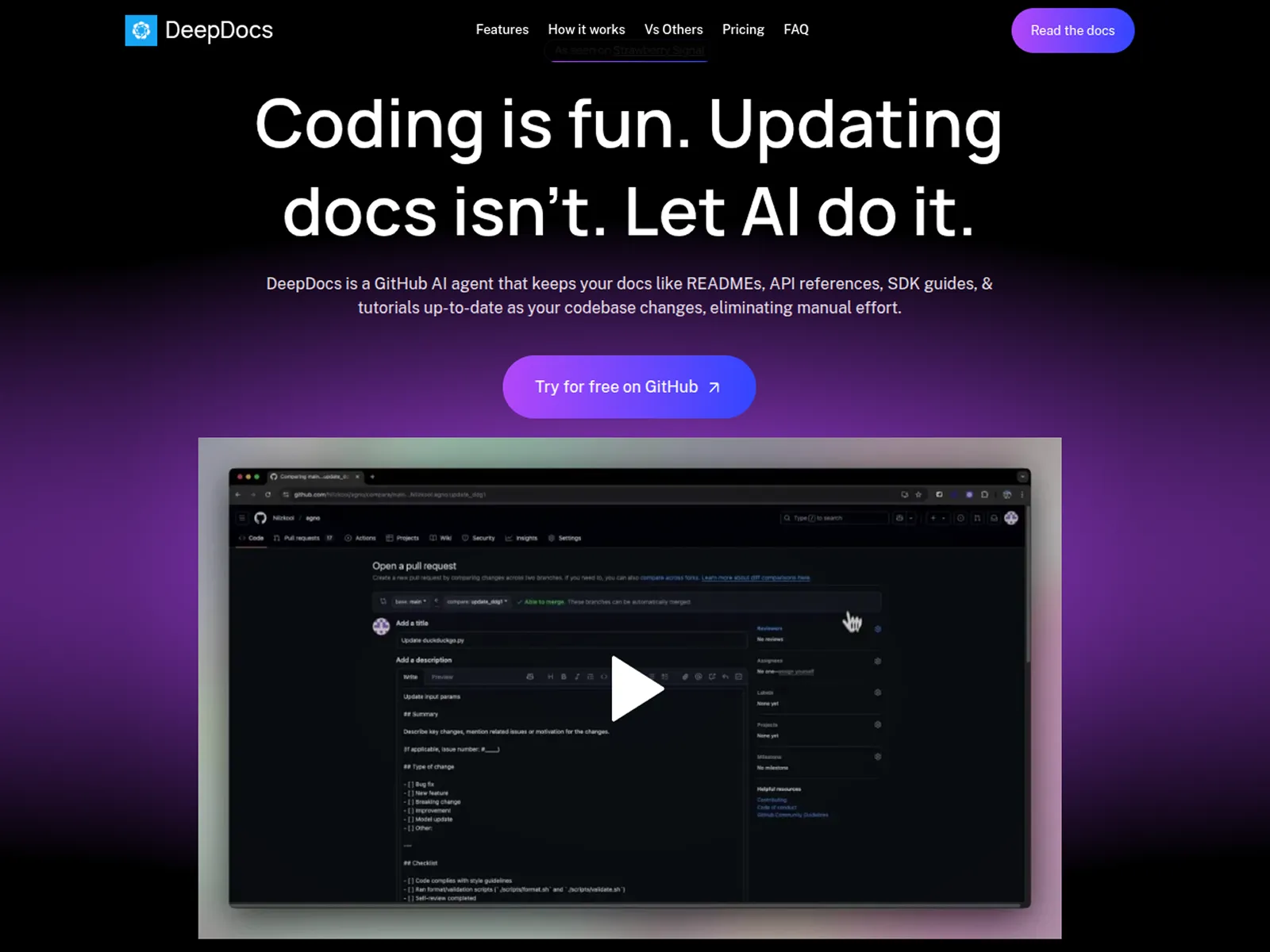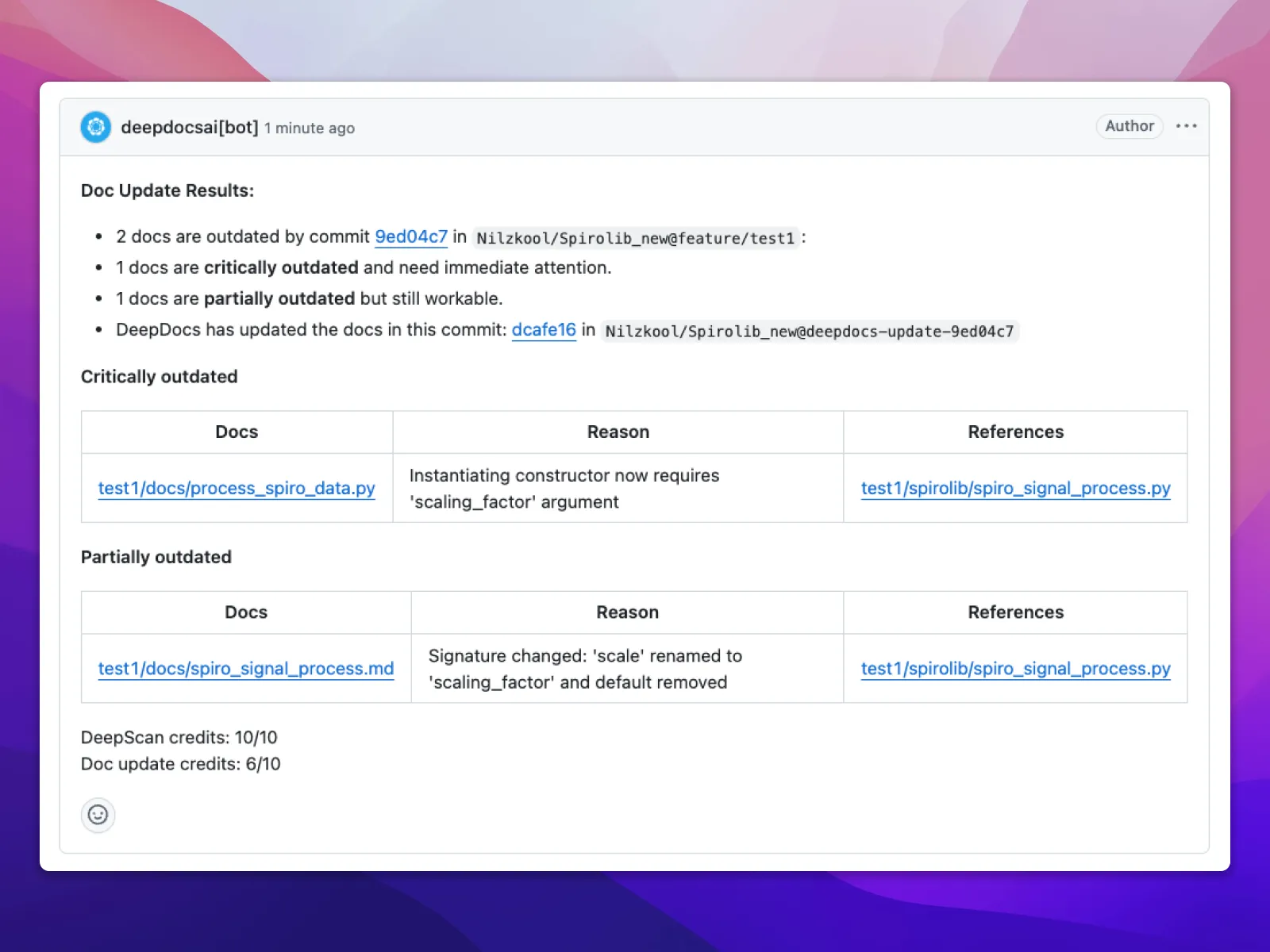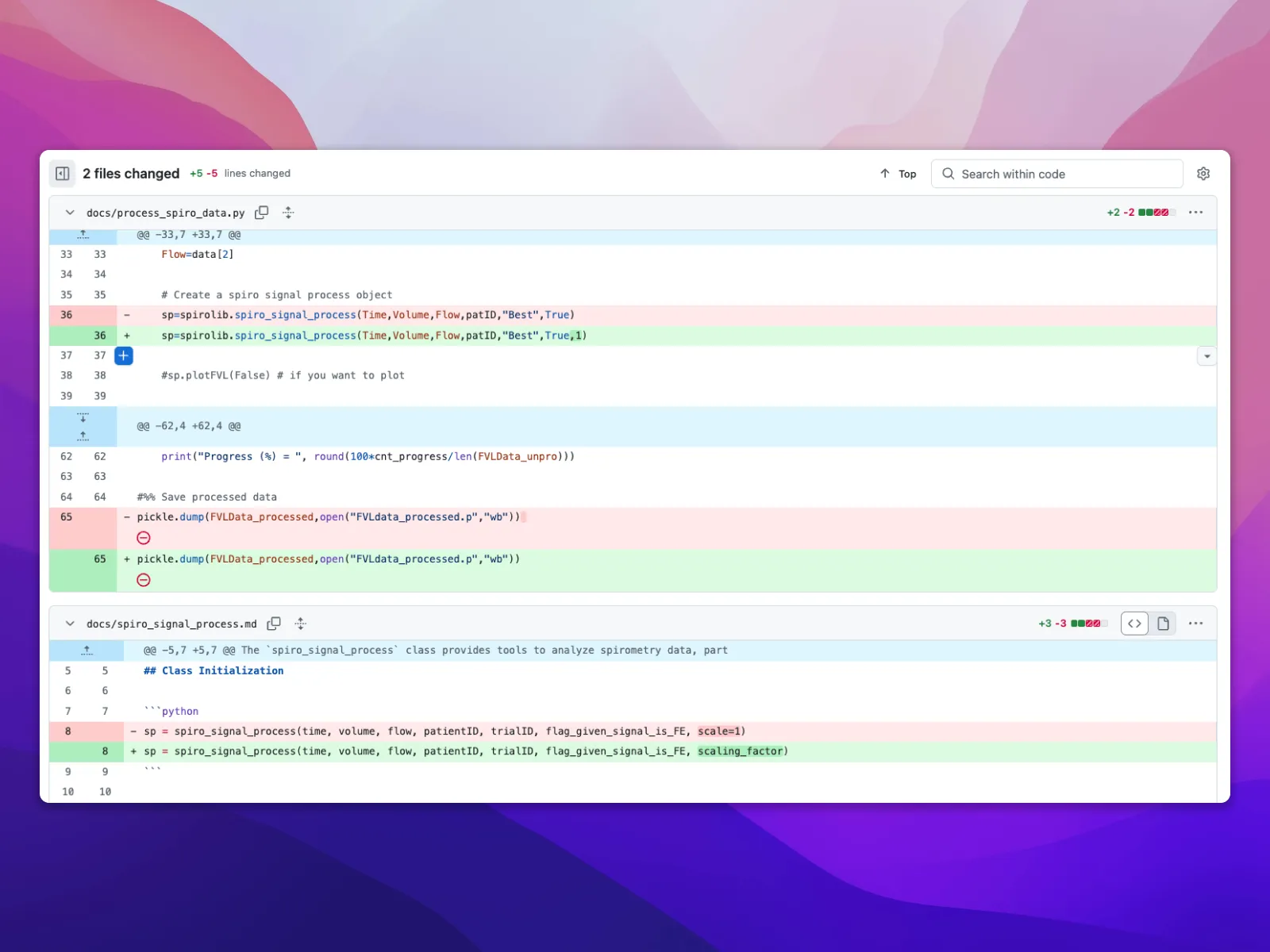Every developer has been there. You merge a pull request, and a week later, someone is confused because the documentation wasn’t updated. The API has changed, the SDK behaves differently, but the docs still reflect an older version. Not because anyone forgot on purpose, but because keeping docs in sync with code is tedious and often the last thing on the checklist.
DeepDocs fixes that.
It is a GitHub-native AI agent that keeps your documentation in sync with your codebase. Whether you're maintaining API references, SDK guides, or onboarding tutorials, DeepDocs watches for changes in your code and proposes relevant updates to your docs—without you needing to lift a finger.
How it works
- You install the DeepDocs app in your repo & define which files or folders contain your documentation. That’s it
- DeepDocs watches your sync branch for new commits. When your code changes, it checks if the related docs are outdated. If so, it proposes clean, focused updates in a new branch along with a detailed report.
Why Developers Use It
Docs often fall behind because no one has time to update them manually after every small change.
DeepDocs helps you avoid that drift. It respects the format and style of your existing documentation and only updates what needs to be updated. You & your team benefits from:
- More time focused on building, not rewriting docs
- Up-to-date resources for your users that make onboarding easier
- Confidence that every PR leaves with your docs being up-to-date
How It’s Different from Coding Agents and auto-documentation generation Tools
There are plenty of tools out there that help with documentation, but most fall into two categories—neither of which truly solves the core problem of keeping high-level docs aligned with evolving code.
1. DeepDocs vs AI agents
AI coding agents (like Cursor, Codex etc. ) can help generate documentation when prompted, but they don’t track your repo over time. They can’t tell when your SDK changed but your README didn’t. They don’t know which doc files are out of date after a PR is merged. These tools are reactive, not proactive—and they require manual input every time.
DeepDocs is proactive. It constantly watches your codebase and documentation together, detects when they go out of sync, and automatically proposes fixes in a reviewable branch. You don’t have to ask for help or paste code into a chat window.
2. DeepDocs vs auto-documentation tools
Tools like Sphinx, JSDoc, or OpenAPI generators are great for extracting low-level technical references from inline comments or annotations. They work well for producing structured reference material like:
- Class and function definitions (via Sphinx in Python)
- Type annotations in TypeScript (via Typedoc or JSDoc)
- REST API specs (via Swagger/OpenAPI generators)
But that’s where they stop. These tools only cover what's inside the code—they don’t touch your:
- SDK usage guides
- Tutorial walkthroughs
- README instructions
- Onboarding guides
- Explanation of business logic or architectural changes
And when the code changes, those guides don't update automatically. You still have to remember to revise them manually.
DeepDocs fills that gap. It focuses on narrative, high-level, and contextual documentation—the kind of docs humans actually read when trying to understand a system. It doesn’t just generate new content from scratch. Instead, it ensures your existing docs stay aligned with the latest changes in your code, so developers and users always see the truth.
Built for Your Stack
DeepDocs is GitHub-native by design. It doesn’t require you to set up a new platform or change how you work. Once configured, it acts as a silent teammate monitoring your main or feature branch for code changes, and updating relevant docs in separate branches. You can easily merge them back after review.It works seamlessly with:
- Monorepos or standalone documentation repositories
- Markdown-based systems like Docusaurus, Mintlify, or mkdocs
- Any CI/CD pipeline or GitHub Actions you already use
There’s no need to adopt a specific format, template, or documentation framework. If your docs live in your GitHub repo, DeepDocs can keep them in sync.
Privacy by Design
Your code is never stored or indexed on our servers. DeepDocs processes files ephemerally during runtime, only for the duration required to detect and suggest documentation updates. No content is retained, cached, or reused outside your GitHub session.
It’s designed for teams who care about privacy, security, and control.




No comments yet. Be the first to comment!